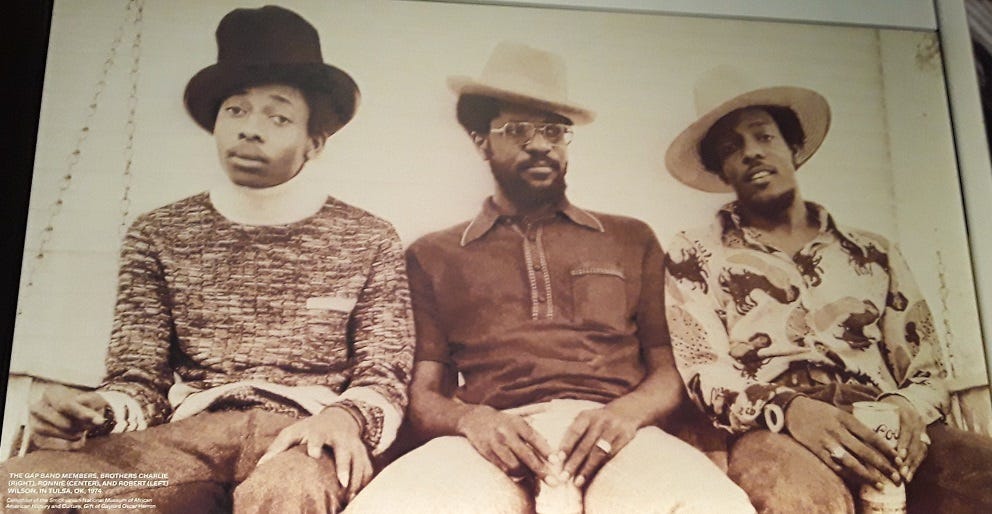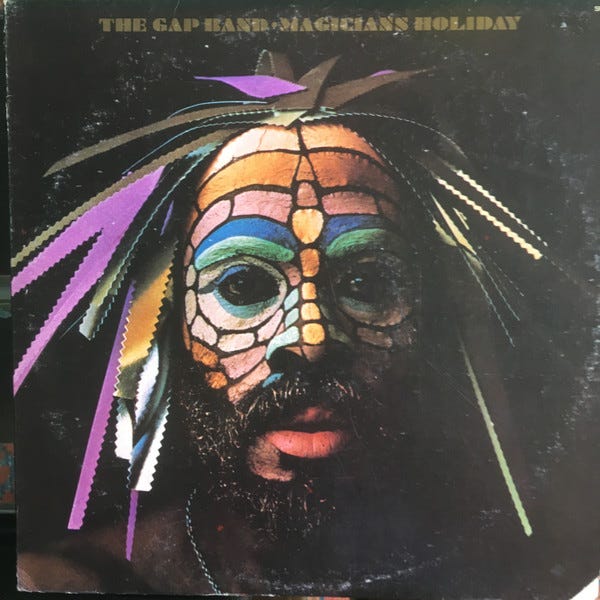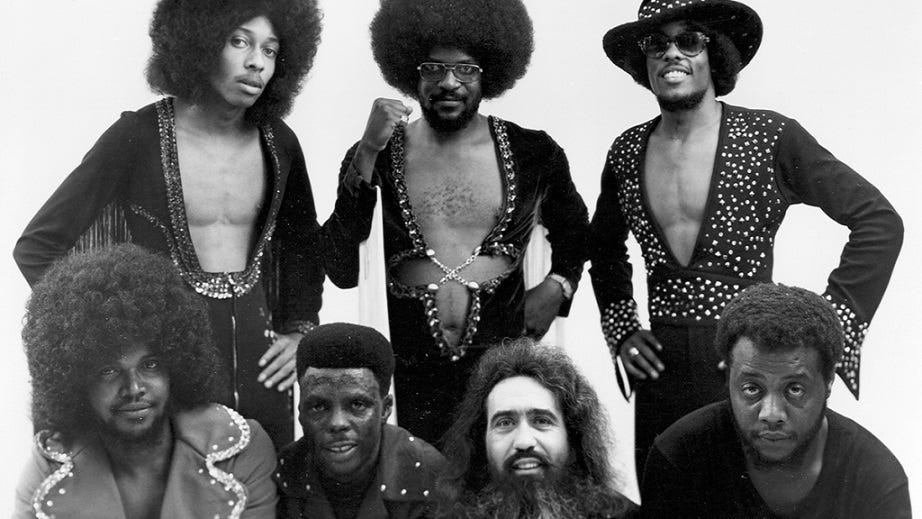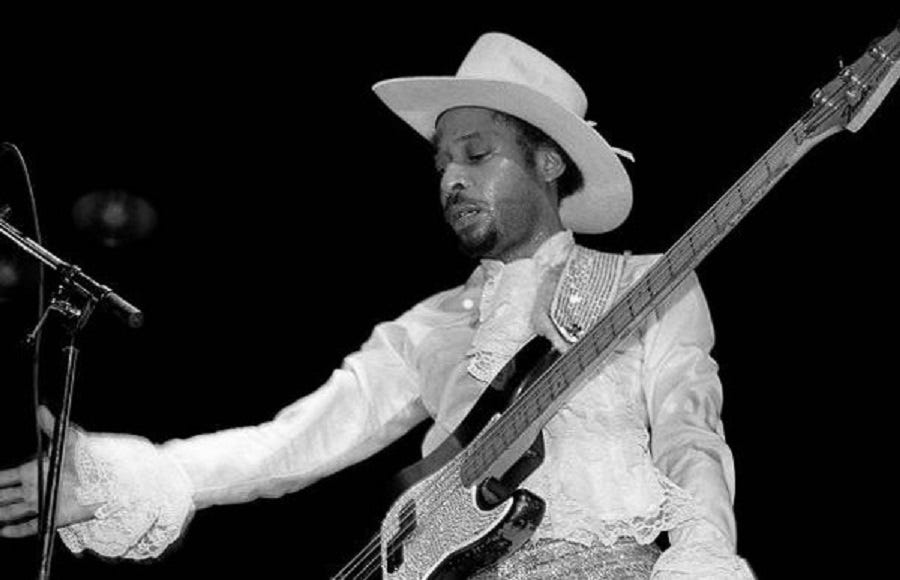Robert Wilson (December 21, 1956 – August 15, 2010) – Knuckle Head Funkin’ (1977)
The Gap Band co-founder co-wrote and played bass on this phenomenal funk jam from their rare first self-titled album, released in 1977 on Tattoo/RCA Records.
View most updated version of this post on Substack.
Robert Wilson was a bassist, songwriter, and one of the three Wilson brothers who co-founded and led the Gap Band.
Born in Tulsa, Oklahoma, the Wilson brothers’ father was a Pentecostal minister who insisted they learn to play instruments, and their mother gave them music lessons. They formed the Greenwood, Archer, and Pine Street Band in 1967. It was named for the intersection of streets at the entrance to the city’s historic Greenwood neighborhood, the former Black Wall Street that was burned to the ground by a white mob during the Tulsa race massacre in 1921. The brothers grew up a few blocks away.
They first shortened their name to the G.A.P. Street Band, and in 1973 changed it one final time to the Gap Band. The same year, fellow Oklahoma native Leon Russell’s manager Buddy Jones saw the brothers performing at a spot called the International Club. They were hired as the backing band for Russell’s 1974 album Stop All That Jazz, and signed to Shelter Records, the label co-owned by Russell. The Gap Band’s debut album Magicians Holiday was released in 1974 on Shelter, produced by Jones. Robert and Jones co-wrote its Sly & the Family Stone-influenced jam “Fontessa Fame,” and Jones and Charlie co-wrote the Stevie Wonder meets Funkadelic workout “Bad Girl.”
For their 1977 self-titled album The Gap Band, issued on Tattoo/RCA Records, all three brothers co-wrote two of the album’s best tracks, the funky “Hang on (To Yourself)” and its closing cut, the romantic slow jam “Silly Grin,” which was released as a B-side.
Robert and Charlie Wilson co-wrote the powerful anti-police brutality anthem “Not Guilty.” Along with the group’s trumpet player Tommy Lokey, Robert also co-wrote the album’s phenomenal funk jam “Knuckle Head Funkin’,” another B-side that deserved to be much more widely heard. Their first album had included a track solely written by Lokey, the Kool & the Gang-flavored “Tommy’s Groove.”
The album featured several superstar guest musicians, including Leon Russell on piano, Les McCann on keyboards, Chaka Khan and D.J. Rogers on backing vocals, and a full choir directed by the Reverend James Cleveland. But it did not sell well, with its first single “Out of the Blue (Can You Feel It)” b/w “Silly Grin” only reaching #42 R&B, and the second “Little Bit Of Love” b/w “Knuckle Head Funckin’” (misspelled on the single’s labels) barely denting the R&B charts at #95.
The group’s fortunes improved when they met Los Angeles producer Lonnie Simmons, who signed them to his Total Experience Productions company. They subsequently appeared as themselves (in scenes filmed at Simmons’ Total Experience nightclub on Crenshaw Boulevard in L.A.) in the low budget 1978 exploitation film Death Drug about the dangers of angel dust. It starred Philip Michael Thomas as an aspiring musician who gets hooked on dust, legendary WBLS DJ Frankie Crocker in a rare film role as his dealer, and was directed by cult Blaxploitation writer/director Oscar Williams.
Simmons got them a deal with Mercury Records and produced their next album, which was again self-titled and released in 1979. This one proved to be the group’s breakthrough, with its hit disco-funk single “Shake” (which closed with one of Robert’s fiery bass solos) peaking at #4 R&B and helping the LP reach #10 on Billboard’s R&B charts. Robert wrote the stellar jam “Got To Get Away” with socially conscious lyrics that reminded us a better world is possible once we overcome racism and unite.
“Show me the way to the future...'cause I am tired of the past / You better make up your mind, don't take too long or it's gone / Let's pull together somehow...we can make it, we can make it on home / C'mon and join my procession, reach out and touch my hand / Walkin' in the right direction, headin' for the promised land / Maybe we can be together, walking 'round and havin' so much fun / Black or white, it really doesn't matter…being as one with our sun.”
Another of the LP’s highlights was the epic jam “Open Up Your Mind (Wide),” co-written by Charlie and Ronnie.
Their next album Gap Band II was released in November, 1979. On the strength of its hit singles “Steppin' (Out)” (#10 R&B) and the P-Funk-esque “I Don't Believe You Want to Get up and Dance (Oops!)” (#4 R&B), it became their first album to go gold. Their successful mining of the P-Funk sound on “Oops!” led to later, similar singles like their first #1 R&B hit “Burn Rubber On Me (Why You Wanna Hurt Me)” (1980) and “Humpin’” (1981).
The group’s career hit its peak over the next few years, with their albums The Gap Band III (1980) and Gap Band IV (1982) both going platinum. Their seventh studio LP Gap Band V: Jammin’ (1983) was certified gold. Its lead single “Party Train” went to #3 R&B, and they shot a brilliant music video to promote it. Directed by influential British DJ and filmmaker Don Letts who helped introduce dub and reggae records to London’s punk scene in the seventies, the video was filmed on location at Venice Beach in Los Angeles.
Reportedly, MTV occasionally played this video back in the day, at a time when they aired very few videos by Black artists. Its production values were far beyond many videos being produced in 1983, and it should have been in heavy rotation. The fact that it wasn’t underscores the racism that kept that very influential channel’s programming whitewashed in the early eighties and contributed to the overall commercial decline of the previous decade’s great funk and soul bands.
Happy Cosmic Birthday to the great Robert Wilson.
Further info:
“Robert Wilson of the Gap Band Dies at 53,” Billboard, August 16, 2010.
“Remembering ‘Uncle’ Robert Wilson,” interview with Steven Ivory, Tell Me More, NPR, August 17, 2010.
“Bassist Robert Wilson of the Gap Band: An Appreciation,” Seattle Post-Intelligencer, August 28, 2010.
“Remembering Buddy Jones,” Tulsa Today, March 15, 2011.
“Tulsa Race Massacre: How The Gap Band Was a Tribute to the Former ‘Black Wall Street’,” by Alex Noble, The Wrap, May 27, 2021.
“The Making of 'Gap Band III', The Album That Turned The Gap Band Into Stars,” by Chris Williams, Okayplayer, June 19, 2021.
#funk #soul #GapBand #RobertWilson










